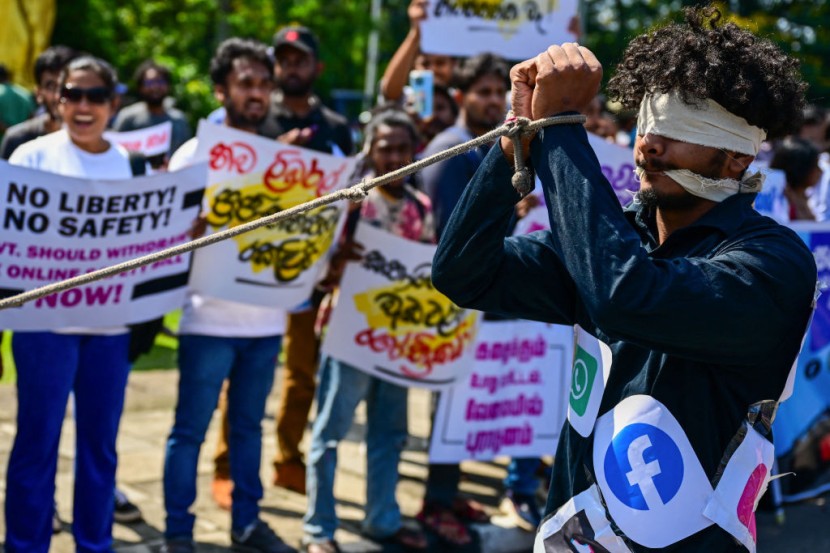The United States has raised apprehensions regarding Sri Lanka's recent approval of the Online Safety bill, a move that grants the government substantial powers to regulate online content.
Passed in Parliament on Wednesday, the bill faced opposition from media outlets, rights activists, and the political opposition, who argue that it could severely impact freedom of speech, especially in an election year, as per Fox News.
Sri Lanka's Online Safety Bill Impact on Free Speech

The legislation enables the creation of an Online Safety Commission with authority to order the removal of online posts deemed as "prohibited statements." This includes the legal pursuit of individuals responsible for publishing such content. The bill, introduced by President Ranil Wickremesinghe's government, received overwhelming support in the 225-member house, with only 62 lawmakers voting against it.
Opponents of the bill, including media, internet, and civil rights groups, have expressed concerns over the potential for creating an oppressive environment. The New York-based Human Rights Watch warned that the legislation could lead to vague "speech-related offenses punishable by lengthy prison terms." The Asia Internet Coalition, consisting of major tech companies such as Apple, Amazon, Google, and Yahoo, argued that the bill could hinder potential growth and foreign direct investment in Sri Lanka's digital economy.
Sri Lanka Professional Web Journalists Association's Secretary, Kalum Shivantha, highlighted the potential impact on their profession, stating that online journalists might resort to self-censorship, and news websites could face shutdowns.
Public Security Minister Tiran Alles, who introduced the bill, defended its necessity by addressing concerns related to online fraud, abuse, and false statements threatening national security. He emphasized that the legislation was not intended to harass media or political opponents, citing over 8,000 complaints related to online crimes filed last year, according to San Antonio Express News.
Read Also : RNC Mulls Declaring Donald Trump 'Presumptive' GOP Nominee; Nikki Haley Lashes Out Over Plan
Sri Lanka's Economic Crisis Fuels Political Unrest
Sri Lanka continues to grapple with its worst economic crisis, declaring bankruptcy in 2022 with over $83 billion in debt, leading to an international bailout by the International Monetary Fund (IMF). The economic turmoil triggered shortages of food, fuel, and other necessities, ultimately resulting in the ousting of then-President Gotabaya Rajapaksa. The IMF provided a $2.9 billion bailout package to stabilize the country.
Current President Ranil Wickremesinghe, who assumed office after Rajapaksa's departure, has faced public dissatisfaction due to new high taxes on professionals and businesses, coupled with increased energy bills. Rights groups accuse Wickremesinghe of stifling dissent through crackdowns on anti-government protests and arrests of protestors and activists.
The Online Safety Bill, passed with 108-62 votes, aims to address online communication of certain statements and prevent the use of online accounts for prohibited purposes. It establishes an Online Safety Commission, appointed by the president, to issue directives against prohibited statements. While the government asserts the bill will protect against online abuse, critics argue it is an attempt to stifle dissent and criticism.
With the upcoming presidential election in Sri Lanka, there is becoming more worry about how the Online Safety Bill could affect the freedom of expression and political discussions within the country. The international community, including the United States, closely observes the situation, highlighting its importance of maintaining democratic values and human rights, CNN News reported.
Related Article : Trump Briefly Testifies in Defamation Trial









